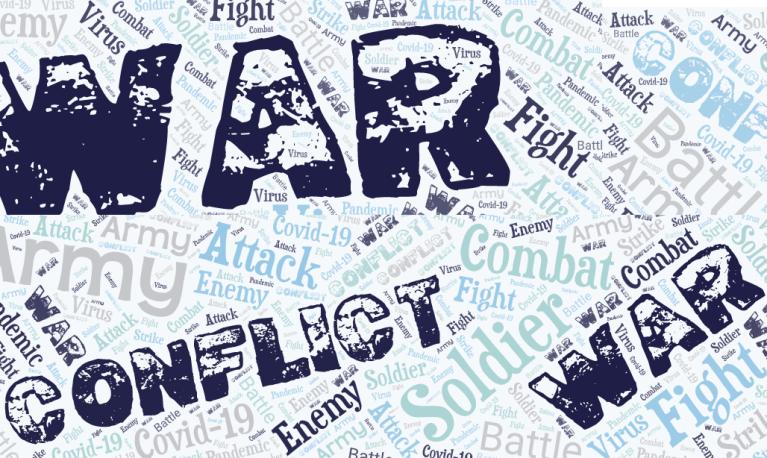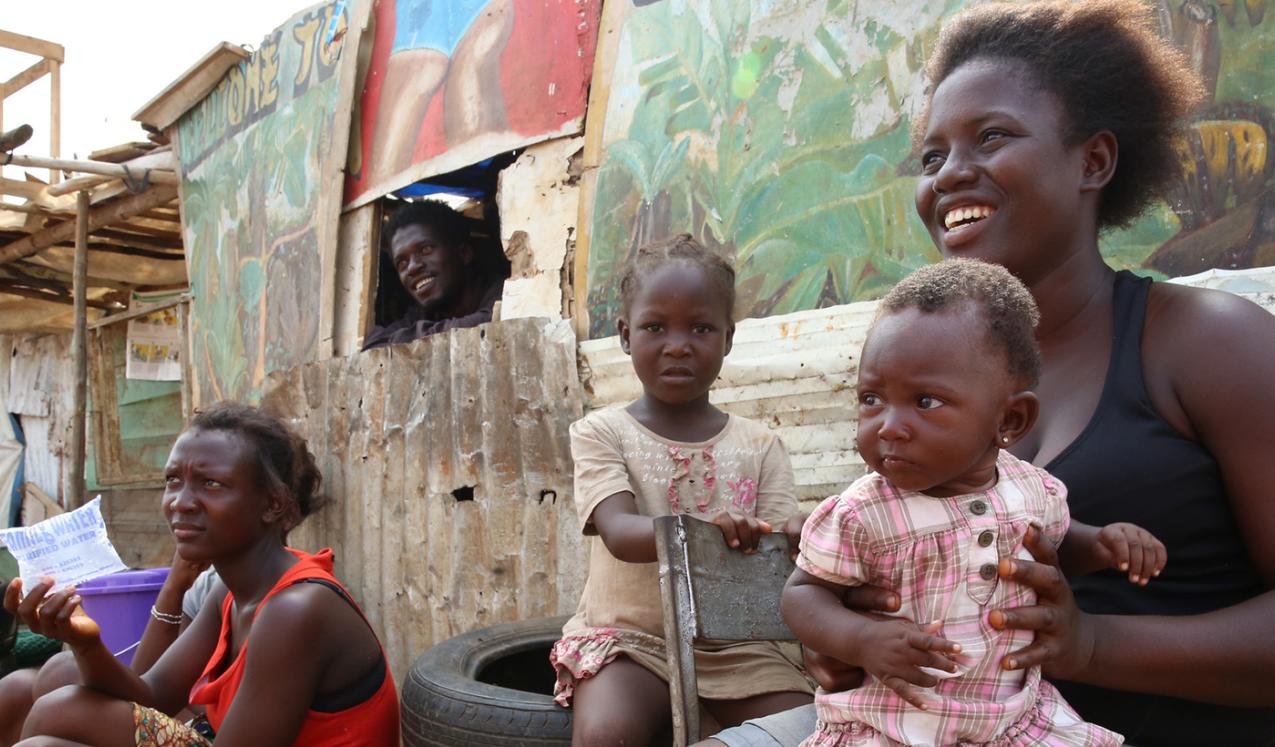
- Blog
- 21 Julio 2020
Care, debt, and safety – how can Sierra Leone’s women cope with the Covid-19 crisis?
- Author: Sripriya Iyengar Srivatsa
- Published by: ALIGN
While gender inequality is a global issue, it takes on specific characteristics in Sierra Leone. And now, the impact of the Covid-19 pandemic is combining with the country’s existing inequalities to jeopardise the socioeconomic wellbeing of its women.
Women in Sierra Leone already face multiple vulnerabilities related to their health, economic status, and access to opportunities. Gender norms discriminate against women, who are socialised to accept the status quo and are often unaware that they deserve better.
While there is a general lack of gender-disaggregated data, we already know that the Ebola health crisis, which ended in 2015, placed a disproportionate burden of socioeconomic challenges on the shoulders of the country’s women. There is now a real danger that we will see the same thing happening as women contend with both Covid-19, and the national response to this disease.
Lockdown conditions mean children are out of school, domestic tensions are rising for families confined in often cramped homes, and the public transport used by so many women has been reduced. These factors have a disproportionate impact on women, who bear the majority of the care work burden in Sierra Leonean households.
There is an urgent need for a gendered response strategy, both to buffer the impact of Covid-19 on women, and to support the long-term goal of reducing gender inequality in Sierra Leone. Community based support systems for women must be established and encouraged by the government. The Ministry of Gender and Children’s Affairs (MGCA) needs to address gender-related issues proactively, and move quickly to devise a national strategy that recognises the specific and distinct needs of women during such a crisis.

Even before the Covid-19 pandemic, Sierra Leone had the world’s worst maternal mortality ratio (1,360 deaths for every 100,000 live births) – the result of poor health infrastructure and a lack of awareness among women about the antenatal care (ANC) that is so essential to reduce the risk of complications associated with pregnancies. As seen during the Ebola crisis, many women did not follow-through on ANC visits as they feared catching the disease in hospitals, or were not allowed to go. Sierra Leone-based NGO Partners in Health (PIH), notes that the fear and stigma associated with ANC may reduce pregnant women’s visits to doctors and crowded health centres.
It does not stop there. The experience of Ebola suggests that young girls in Sierra Leone who cannot go to school now face the risk of being sexually abused at home by family members or by strangers when their parents are out working during the day. Lack of awareness about sexual health and access to safe abortion services puts these girls at risk of unsafe abortions, and of complications during pregnancy because their inability to receive proper ANC. If they do overcome these obstacles, they may be forced to drop out of school after giving birth as their caring responsibilities increase.
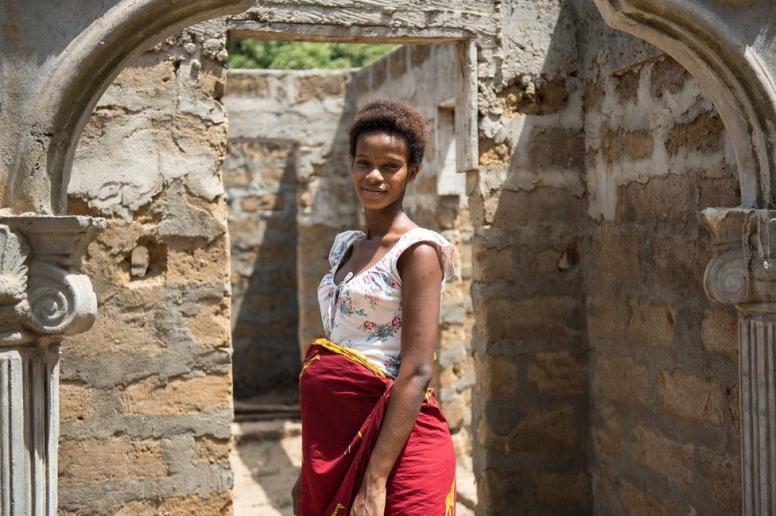
A UNESCO report has found that girls who had access to community centres during the Ebola crisis were more likely to go back to schools than those that were not members of ‘girls’ clubs’. These clubs provide safe spaces where young women can gather and discuss gender-specific issues, and find answers to questions on health, sanitation, and education.
In my own opinion, such community-based interventions can go a long way to improve the quality of life for women and girls. The conversations they have here, and the leaflets that give them information, can promote a rethinking of the gender norms in their communities. Women can express their critical perspectives on Sierra Leonean society, while the community centres help them to develop their own thoughts and views in a safe space.
The Covid-19 crisis has exacerbated the financial stress faced by most Sierra Leonean women under ‘normal’ circumstances. Most households are female-headed (65.9%) , and the women who head them tend to engage in petty trading activities or small-hold farming. As incomes fall and the economy sinks, their trading activities face further challenges. In order to keep their businesses running, they may need to resort to borrowing, and many will go deeper into debt.
At the same time, the health crisis will require them to spend more on their care responsibilities, such as medicines for family members who fall sick and paying more for food to maintain the family’s nutrition, increasing their chances of defaulting on their debts and being detained by the police as a result. AdvocAid, a Freetown-based NGO, finds that predatory microfinance institutions are key complainants to the police. The MGCA needs to monitor these to the greatest extent possible to restrict their predatory lending. The Ministry must also work more closely with the leading civil society organisations that represent women to identify solutions that ensure that they have fair access to finance.
The emotional stress caused by the Covid-19 pandemic and other crises is often borne by women who are outside of any form of support system. Women who express mental health difficulties are viewed in society as being ‘spiritually weak’ and immoral, a notion that is even supported by many churches, which does little to help women in such a deeply religious society.
According to my own calculations, the Ministry of Gender and Children’s Affairs received only 0.33% of total financing from the national budget for 2020 and needs to exercise the utmost creativity to address deep-rooted problems. Community-based measures are one solution as they are inexpensive and can be effective in providing a much-needed outlet for women.
In the long term, however, the Government needs to invest time and resources to unpack and address complex social dynamics that have solidified the weaker status of women. We need to understand and tackle the roots of current social arrangements and the perils of a worsening status quo as part of the wider government response to the Covid-19 crisis.

It is crucial at this point for relevant institutional stakeholders to push for a gendered agenda and broaden the reach of the community-based initiatives that had some success during the Ebola crisis. It is also essential for the Government to collect gender-disaggregated data. What we learn from successful interventions during this crisis can inform long-term strategies and challenge gender norms in wider society. Learning from the Ebola crisis, we know that women achieve collectively better outcomes should they find support with one other in their local areas, and therefore must be encouraged to build cooperative communal networks. Slowly, but surely, stigmas can be questioned, opportunities can be taken, and Sierra Leonean women can take a step closer to their own empowerment.
About the author

- Tags:
- Covid-19
- Countries / Regions:
- Sierra Leone
Related resources
Briefing paper
21 Julio 2020
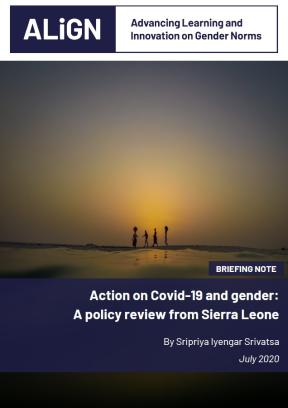
Blog
7 Enero 2022
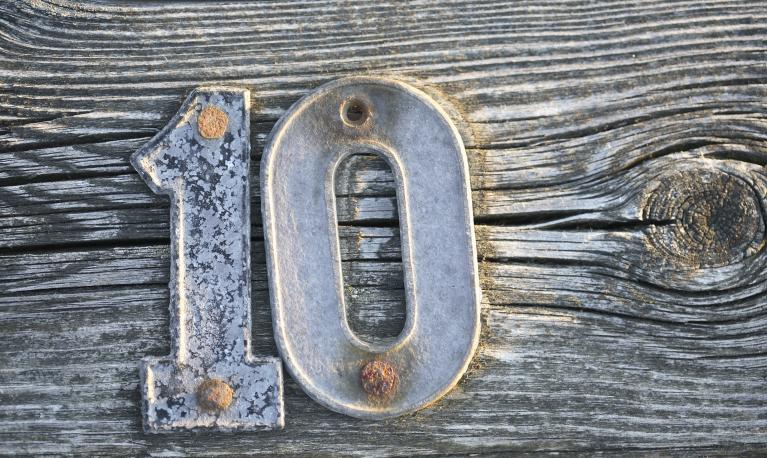
Blog
29 Septiembre 2021
